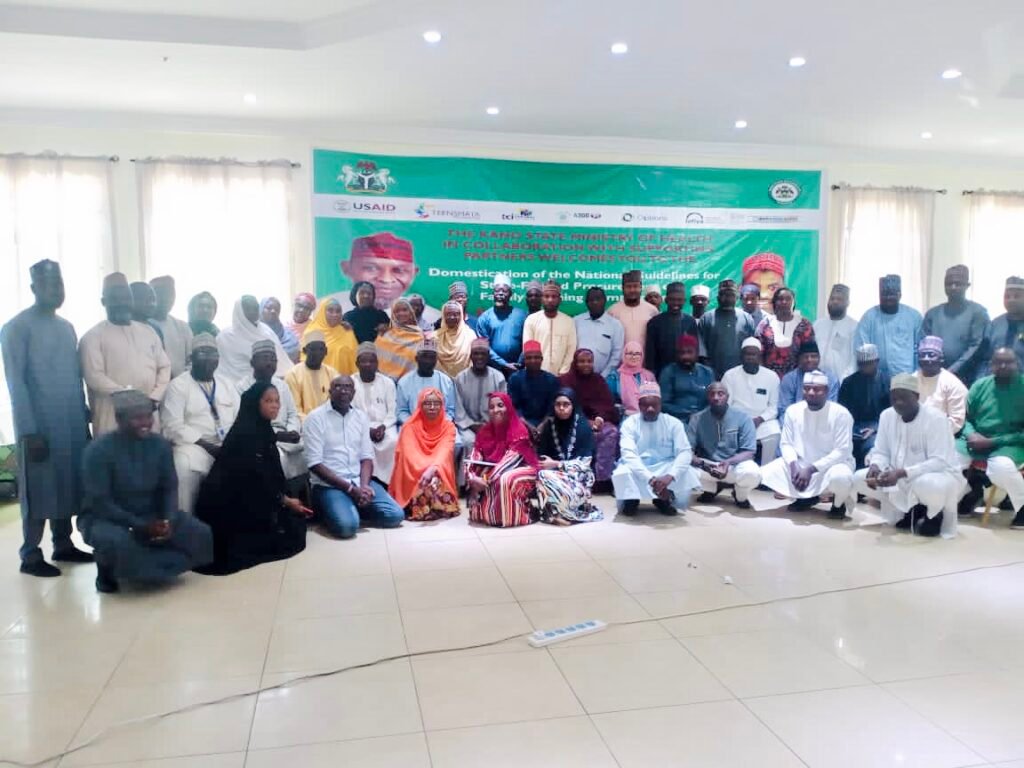The passion attached to the healthcare system of Kano state by Governor Abba Kabir Yusuf has been described as the principal reason of the total transformation the sector is witnessing.
The state Commissioner of Health, Dr. Abubakar Labaran Yusuf made the assertion while speaking at a 3-Day Workshop on Domestication of the National Guidelines for State-Funded Procurement of Family Planning Commodities in Kano State, organized by the ministry in collaboration with the implementing partners, held in Kaduna state.
The Ministry’s Information Officer, Ibrahim Abdullahi disclosed this in a statement issued to newsmen on Sunday.
The Commissioner stated that the seriousness of His Excellency on health could brightly be seen in his 2024 budget presentation, in which over N51 billion was allocated to the sector to ensure peoples’ demands on health are attended to by all the health agencies.
He assured the gathering that accessing funds for service delivery to the people will not be difficult in the present administration because the Governor is committed to that at all times, pointing out that what is only required is the commitment and seriousness from the people implementing the programmes.
Represented by the Director General Private Health Institutions Management Agency (PHIMA), Prof. Salisu Ahmad Ibrahim, Dr. Labaran said that Nigeria, being a federating country, Kano has its own peculiarities different to other states, urging the participants to critically look into the guidelines to see how they will be fashioned to suit the demands of the state in such a way that they could be workable and accessible.
Dr. Labaran averred that the current administration has succeeded in building confidence to the drugs supplying companies to return back their services after running away from the state because of their huge unpaid debts been assured that within one year the outstanding payments would be settled off.
The Commissioner maintained that part of what is going to be discussed within the guidelines is where the drugs manufacturing companies can come in, further assured that it was an avenue where government can easily key in so as to make the supply very robust to even reach the remotest area in the state.
In his welcome address, the Director Public Health and Disease Control of the ministry, Dr. Ashiru Rajab recalled that in some years back states were not allowed to procure family planning commodities, they are supposed to collect the commodities free for distribution and utilization in the health facilities.
He revealed that, there was a basket at the national level in which the federal government and all other partners put the money, lamenting that because of the dwindling economic situation in the country the basket has not been active at it should be.
Dr. Rajab maintained that looking at the situation, it was decided that states should be allowed to procure family planning commodities but with caveat, that states were not allowed to procure any how they want.
He enjoined the participants to, in the course of domesticating the guidelines, look into what has been put in the document and customize it to serve the good people of Kano state.
Enumerating the objectives of the workshop, the State Reproductive Health and Family Planning Coordinator, Dr. Umma Abubakar Isah, said it is aimed at defining the state quantification criteria and processes; to determine how best to align with the existing national family planning supply chain and to identify the system in order to avoid for more complex system.
Others, she said, is to document the mechanism to ensure procurement of quality family planning commodities; to define reporting line for data visibility of commodities procured at the national and state levels; to identify the technical assistance needed from UNFPA, USAID and other collaborating partners; and to define the roles of states and federal ministry of health in monitoring and evaluating the implementation of the guidelines.
Development partners such as Bill and Melinda Gates Foundation, Lafiya Project, A360, Options, iDevPro, YPE4H, etc expressed support to the domestication process with fruitful and vital inputs to making it robust and implementable.

